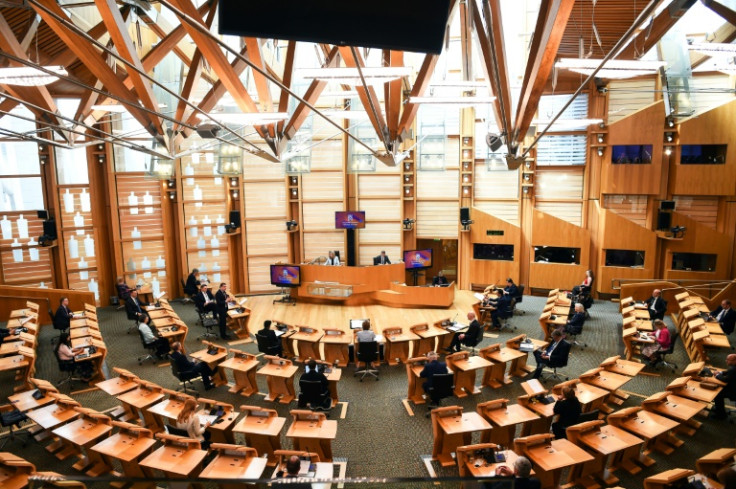Holyrood and Westminster Face Policy Disparities Amid Scotland's Drug Death Epidemic
Scotland is due to allow supervised use of injectable drugs under medical supervision, in a move to tackle skyrocketing drug-related deaths.

Holyrood and Westminster seem to be diverging on their respective approaches to yet another sensitive issue – this time, drug policy. Plans for the UK's first drug consumption room (DCR), where drug users may inject themselves under the safety of medical supervision, have been approved.
Scotland faces a drug death epidemic, with the highest rate of drug-related deaths in Europe, a rate which is also three times higher than that in England. In 2022 alone, 1051 people lost their lives to drug use. The SNP-led devolved government in Scotland has long faced calls to do better on the issue.
Plans for the pilot facility, which will be based at the Hunter Street Health Centre in East Glasgow, were given the green light on Wednesday by the Glasgow City Integration Joint Board.
The pilot is planned to begin in summer 2024 and will receive £3 million in funding over three years. The hope is that deaths related to drugs can be reduced by this approach, and perhaps avenues towards treatment can also be encouraged.
Whilst drugs policy is technically the purview of Westminster, the Conservative-led government has said it will not oppose the pilot DCR. At the same time, however, Westminster has repeatedly rejected such proposals as they pertain to England.
Home Secretary Suella Braverman told ITV News: "My view is it's the wrong policy, and I don't support the policy of drug consumption rooms."
She also said: "I don't believe they deal with the root cause of addiction and drug dependency. So I would not support that policy."
Whitehall has long approached drug policy as a law and order issue, whilst Scotland has been calling for it to be seen through a public health lens. Recently the Home Affairs Select Committee published a report backing a public health approach and supporting DCRs, particularly as drug-related deaths have continued to climb in the last several years. The Home Office stated at first that it would not consider the recommendation, whilst it has opted not to stand in Holyrood's way.
Whitehall has faced criticism for relying on a drugs policy based on the 50-year-old Misuse of Drugs Act, as the UK deals with an increase in drug-related deaths.
Earlier this month, a leaked document revealed that the government had concealed a 2016 report by the UK's Advisory Council on the Misuse of Drugs (ACMD). The report had advocated for a formal repeal of the criminalisation of personal-use drug possession. It is the only ACMD report not to have been published.
At the time, the Home Office stated: "There is no safe way to take illegal drugs, which devastate lives, ruin families and damage communities, and we have no plans to consider legalisation or decriminalisation of drugs."
It is clear that the Conservative government is moving in the opposite direction to Holyrood. It has arguably moved to make drug laws more stringent by putting forward legislation that would make the recreational use of nitrous oxide gas punishable by two years in prison. The law will come into effect by the end of this year.
The pivotal shift in Scotland came when Dorothy Bain KC became the new Lord Advocate in 2021. She told Holyrood's Justice Committee she would look at "a very well set out proposal" for DCRs.
She also laid the path for de facto decriminalisation in 2021 by suggesting that people caught with Class A drugs could be given a warning by police instead of facing prosecution.
Whilst it is acknowledged in Edinburgh that DCRs would be one strand of a more comprehensive approach, the approach has broad international support and backing among the medical community. Similar programmes have seen success in Portugal and other countries.
Earlier this year, Scotland's drugs and alcohol policy minister, Elena Whitham spoke on the issue at the annual meeting of the Global Commission on Drug Policy, which was held in Edinburgh.
She enjoyed the support of two former prime ministers, Helen Clark of New Zealand and Ruth Dreifuss of Switzerland, both now members of the Global Commission, as she stated that decriminalisation was "no longer a novel approach" but practised "across the world (because it) works well".
© Copyright IBTimes 2025. All rights reserved.






















